39 social rhythm therapy worksheet
IPSRT is a compelling adjunctive therapy for people with mood disorders, and it emphasizes techniques to improve medication adherence, manage stressful life events, and reduce disruptions in social rhythms. IPSRT teaches patients skills that let them protect themselves against the development of future episodes.
The program's focus on circadian and biological rhythms speaks to all people, and its precise approach to interpersonal relationships helps keep the therapy immediately relevant and helpful to patients. Clinicians. After having read your excellent book, I have started using IPSRT with some of my patients.
SOCIAL RHYTHM THERAPY • Social rhythm therapy (SRT)¹ -Regulate daily routines -Emphasizes the link between regular routines and moods -Uses Social Rhythm Metric to monitor routines • Interpersonal psychotherapy (IPT)² -Emphasizes link between mood and life events -Focus on interpersonal problem area (grief, role

Social rhythm therapy worksheet
Relationship Conflict Resolution (Worksheet . When used correctly, a few simple conflict resolution skills can make a tremendous difference in the quality of a relationship. The Relationship… Feasibility Evaluation of an Interpersonal and Social Rhythm Therapy Group Delivery Model . LOTS of useful Therapy Worksheets .
Interpersonal Social Rhythm Therapy Worksheet:VERSION 2. Amanda Knowles. On this page, we will provide you with an Interpersonal Social Rhythm Therapy Worksheet which will help you to learn about Interpersonal Social Rhythm Therapy. What is an Interpersonal Social Rhythm Therapy Worksheet? Interpersonal social rhythm therapy is a type...
Instructions on how to use an Interpersonal Social Rhythm Therapy Worksheet Read the information carefully provided in the worksheet related to the strategies used in ISRT to treat the bipolar disorder so that you have an awareness about it. You can download this worksheet here. Conclusion
Social rhythm therapy worksheet.
pro-social behaviors. • Reflective Questions for Journaling — Self-exploration activities and journaling exercises specific to each assessment to enhance self-discovery, learning, and healing. • Educational Handouts — Handouts designed to enhance instruction can be used individually
social rhythm, in order to stabilise daily mood variations An ability to work with the client to identify associations between social rhythms, social roles, and daily routines and their vulnerability to changes in mood An ability to help the client initiate a 'social rhythm metric' (a detailed record of activity
Interpersonal and social rhythm therapy modulates both biological and psychosocial factors to mitigate patients' circadian and sleep-wake cycle vulnerabilities, improve overall functioning, and better manage the potential chaos of bipolar disorder symptomatology. Interpersonal and social rhythm therapy is an individual psychotherapy designed specifically for the treatment for bipolar disorder.
The worksheet will help you in learning effective interpersonal and behavioural skills to manage a healthy and good life. Instructions on how to use an Interpersonal Social Rhythm Therapy Worksheet Read the information carefully provided in the worksheet related to the strategies used in ISRT. You can download this worksheet here. Conclusion
Addition of social rhythm therapy to interpersonal psychotherapy leads to create a new psychotherapy adaptated to bipolar disorders: InterPersonal and Social Rhythm Therapy (IPSRT). IPSRT, in combinaison with medication, has demonstrated efficacy as a treatment for bipolar disorders. IPSRT combines psychoeducation, behavioral strategy to ...
Tina Goldstein, PhD, assistant professor of psychiatry at UPMC, talks about the study she is leading that looks at how IPSRT can help benefits young adults w...
Interpersonal and social rhythm therapy (IPSRT) was conceived in a single day; actu-ally, in a single flash of recognition on July 14, 1990. For the previous 10 years I had been working on a long-term maintenance treatment study testing the prophylactic value of interpersonal psychotherapy for individuals with recurrent unipolar depres-sion.
In psychiatry, the social zeitgeber theory argues that social life provides important social cues that entrain circadian rhythms. Disturbance of these social cues might lead do dis-entrainment of circadian rhythms and evoke somatic symptoms that increase the risk of mood disorders. In preventing and treating patients with bipolar disorders, the Interpersonal and Social Rhythm Therapy (IPSRT ...
Interpersonal and Social Rhythm Therapy is a specific type of psychotherapy developed to help people with bipolar disorder. Its focus is on helping people identify and maintain the regular routines...
psychoeducation, evaluates social rhythms, introduces the Social Rhythm Metric, identifies the patient's main interpers onal problem area, and contractualizes the therapy . In the second phase ...
Interpersonal social rhythm therapy worksheets Think back to the last time your daily routine suffered a significant interruption. (With the COVID-19 pandemic turning life upside down, most of us don't have to reach too far back!) When the rhythm of everyday life is upended, most people naturally become more anxious and less focused.
Social Needs: Fulfillment of basic social needs, such as love, belonging, and connectedness. This helps provide a feeling of security and contentment. Building Social Support . Attend to your existing relationships. Reach out to friends and family. Make it a priority to
Interpersonal and social rhythm therapy (IPSRT) is a therapeutic approach developed specifically to target bipolar disorder. It developed out of the successful interpersonal therapy approach, but added emphasis on social rhythms because setting and maintaining a regular schedule can have a regulatory effect on mood swings.
EXERCISE 6.3 RHYTHM CHART Name: _____ Month: _____ Week: _____ At the same time each day, fill in the chart below. For "People Present" use the rating system at the top left to record who you were with and their involvement with you.
Social Rhythm Therapy Interpersonal and social rhythm therapy (IPSRT) is a treatment that is specifically designed for patients with bipolar disorder. As elaborated below, the genesis of IPSRT rests in a psycho-chronobiological theory of affec-tive illness that we articulated in a series of papers in the
Interpersonal Social Rhythm Therapy Worksheet Amanda Knowles On this page, we will provide you with an Interpersonal Social Rhythm Therapy Worksheet which will help you to learn about Interpersonal Social Rhythm Therapy.
Benefits of social support include improved physical health, greater resilience to stress, a feeling of security, and more. The Social Support worksheet will help your clients learn about, and explore, their social support system. The psychoeducation portion of the printout explains the benefits of social support, types of support, and ways to ...
Interpersonal and Social Rhythm Therapy is a form of therapy designed to help those with mood disorders like bipolar I and major depressive disorder to reduce the recurrence of acute symptoms. This form of therapy targets two main areas: the maintenance of consistent, everyday life routines and the cultivation of positive social relationships.
An online, 8-hour training course. Video interviews with IPSRT experts. Downloadable copies of IPSRT tracking tools and other downloadable forms and materials, including instruments for assessing symptoms of bipolar disorder. A message board allowing IPSRT practitioners to share ideas and ask one another questions.
Social rhythm therapy is a behavioral approach aiming at increasing regularity of social rhythms using the Social Rhythm Metric (SRM), a chart to record daily social activities including how stimulating they were, developed from observation that disruptions in social rhythms often trigger affective episodes in patients with bipolar disorder.
Seven studies were included in the review: four reporting interpersonal and social rhythm therapy (IPSRT) interventions and three sleep/light interventions. Discussion The results suggest that IPSRT may have a potential benefit in improving mood symptoms and relapse, but it is not clear whether this is of greater benefit than an intensive ...
Social Rhythm Metric (SRM) 1 of 2 . Persons Involved (check all that apply) Time (Circle AM or PM) Or N/A ; Spouse / Partner Child(ren) Relative(s) Parent(s) Friend(s) Coworker(s) Other Other Alone 1. What time did you go to bed last
Interpersonal Social Rhythm Therapy Worksheet:VERSION 2. Amanda Knowles. On this page, we will provide you with an Interpersonal Social Rhythm Therapy Worksheet which will help you to learn about Interpersonal Social Rhythm Therapy. What is an Interpersonal Social Rhythm Therapy Worksheet? Interpersonal social rhythm therapy is a type...

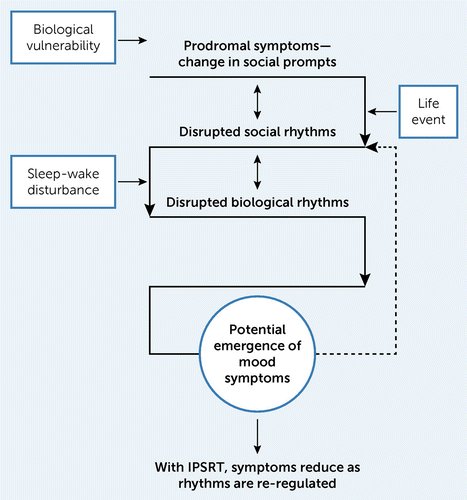
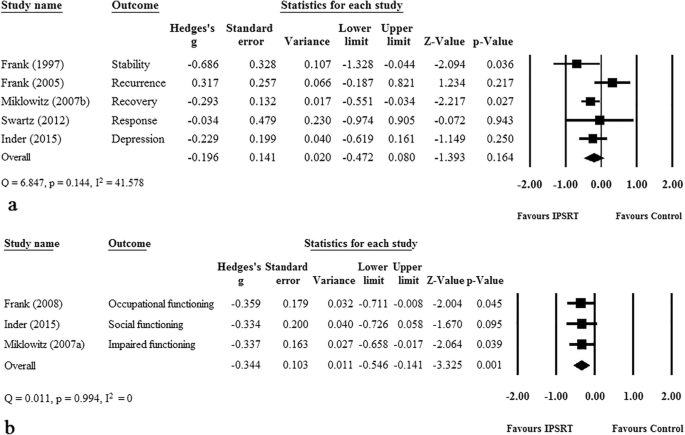
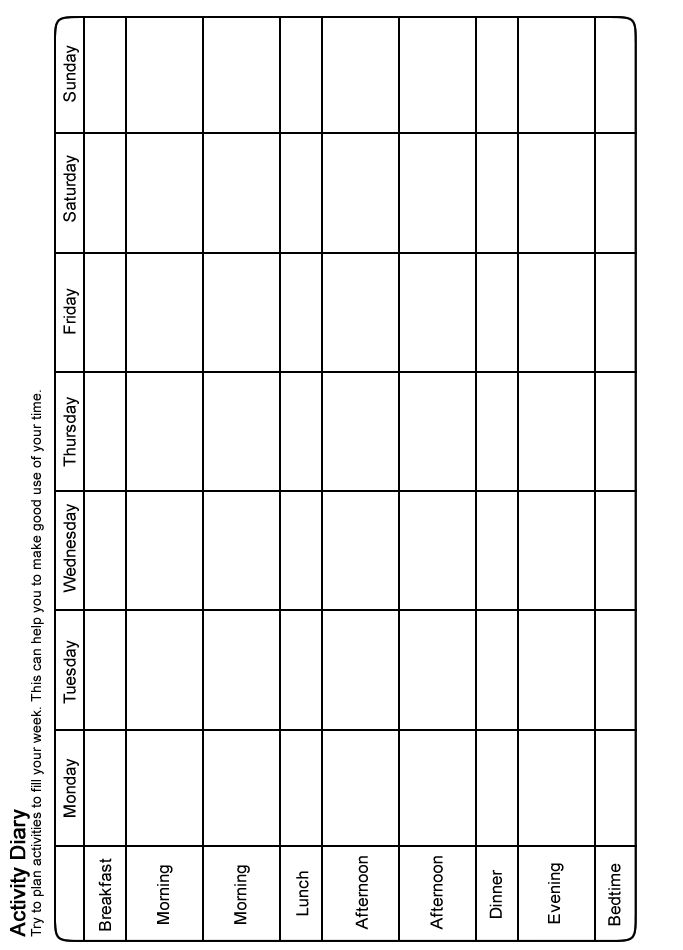
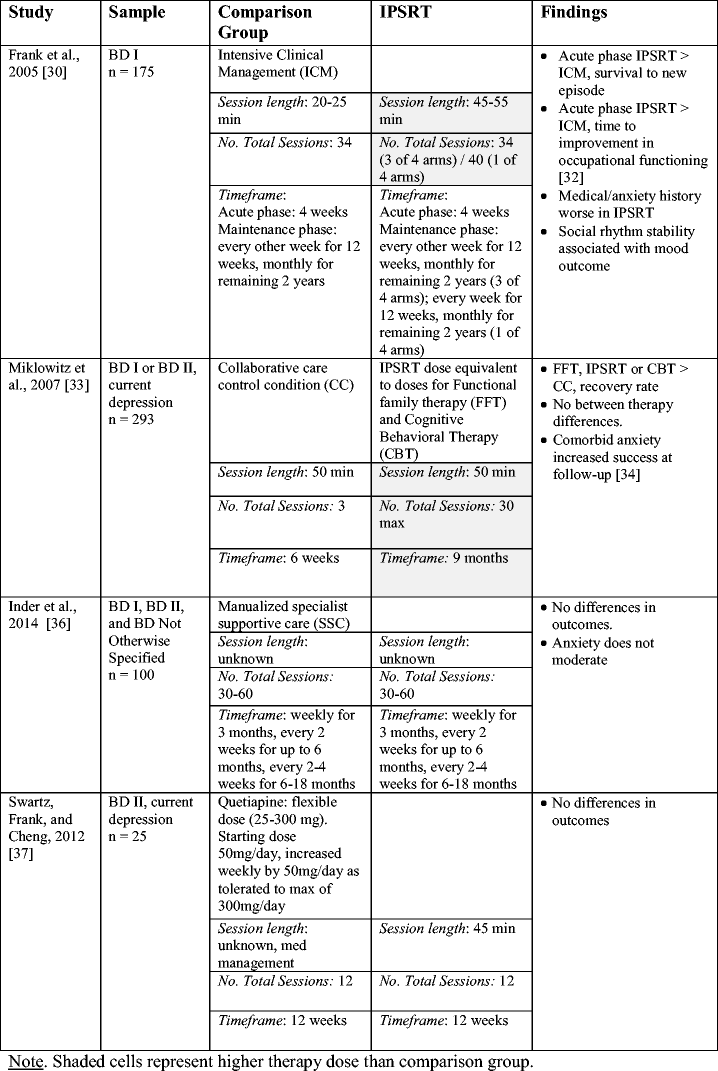



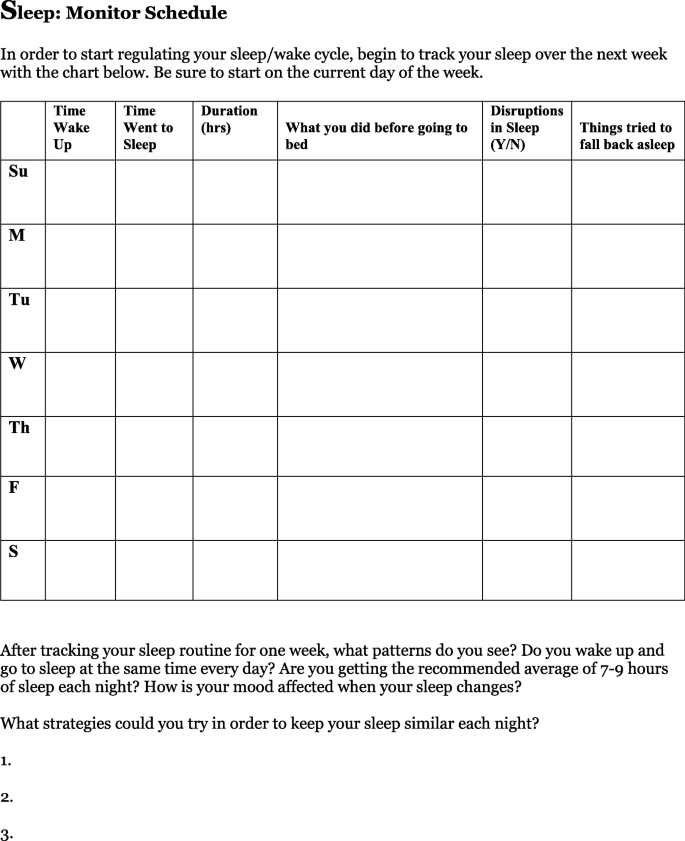




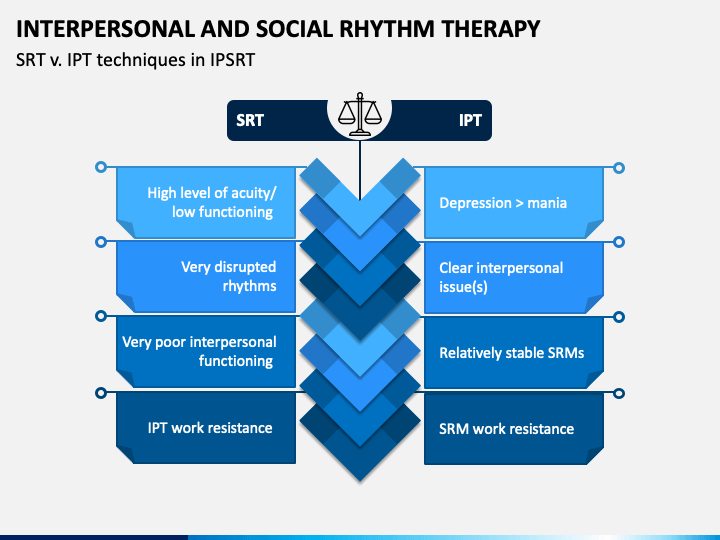


![PDF] Calculating the Social Rhythm Metric (SRM) and Examining ...](https://d3i71xaburhd42.cloudfront.net/172c2d7128bc2a8e4ee6f329d38d150a4109fdd2/4-Table1-1.png)



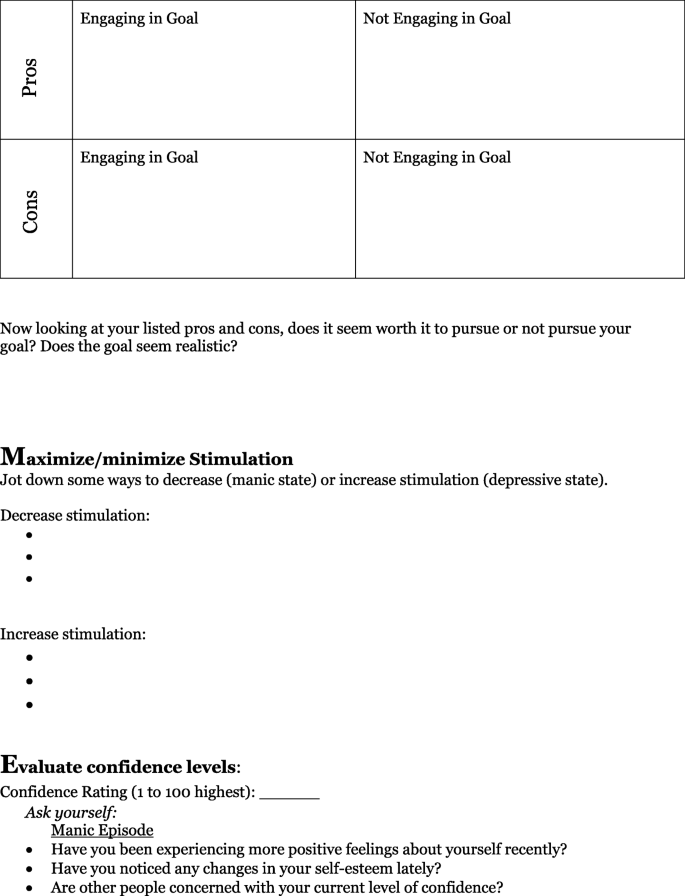




![PDF] Interpersonal and social rhythm therapy: an intervention ...](https://d3i71xaburhd42.cloudfront.net/a8e35544e5d457687809816af3295866852cc5fc/3-TableI-1.png)

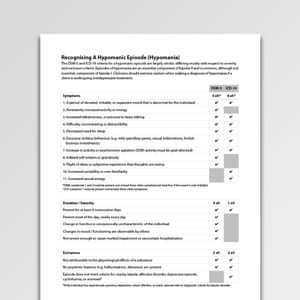


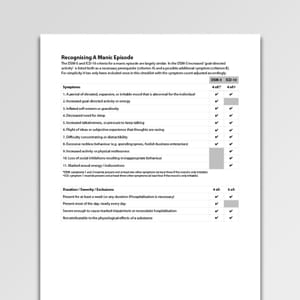
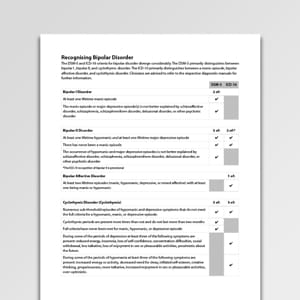
0 Response to "39 social rhythm therapy worksheet"
Post a Comment